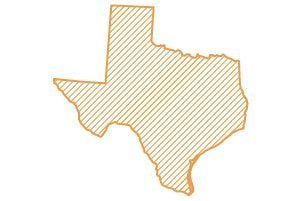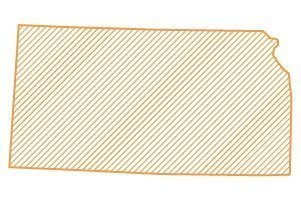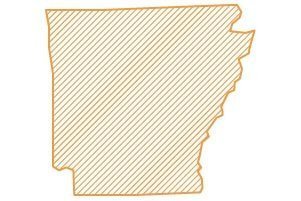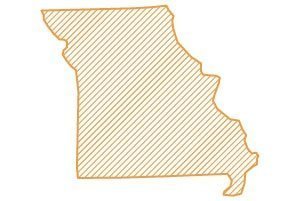The state of Oklahoma offers various opportunities in higher education, including undergraduate, master’s, and Ph.D. programs in library and information sciences. The largest university is the University of Oklahoma, and they offer the best and only master’s in library and information science accredited by the American Library Association (ALA). Some other excellent colleges and universities include Southwestern Oklahoma State University, Cameron University, East Central University, and Oklahoma State University.
This article highlights each library science program in the state and how to apply and qualify for admission. It also looks at how to become a librarian, the salary opportunities and career outlook, and the opportunities in Oklahoma’s largest cities. Additionally, we look at other careers and opportunities for information specialists outside of librarianship. If this sounds interesting or helpful to you, keep reading.
ALA Accredited Library and Information Science Programs in Oklahoma
The American Library Association (ALA) sets the standard for library and information programs. They accredit master’s programs in library and information science and provide guidelines and standards for libraries and professional librarians. Oklahoma offers one ALA-accredited program through the University of Oklahoma. The university’s School of Library and Information Studies is also a part of the iSchools consortium. Additionally, the professors of library and information are decorated in various ways, including being awarded the Edith Kinney Gaylord Presidential Professorship.
Master of Library and Information Studies at the University of Oklahoma
This program is offered completely online or with some online courses and some on-campus courses offered at the Norman and Tulsa campuses. The degree is 36 credit hours and requires either a passing grade on a comprehensive exam, a completed written thesis, or a completed portfolio. However the student chooses, they will have plenty of practical experience and the knowledge they will need for a profession in information. They also offer dual degrees with a Master of Museum Studies, a Master of History of Science, a Master of Social Work, and their J.D. or MBA programs.
How to apply
Applicants who meet the minimum qualifications have a GPA of 3.0 on a 4.0 scale and an undergraduate degree. To apply, applicants must fill out an online application and pay the application fee. Additionally, applicants need to send in transcripts, three references, a professional resume, and a statement of purpose and goals. No GRE test results are required.
Ph.D. in Library Science Programs in Oklahoma
A doctorate degree in information science grants graduates the expertise to study independently and to create change in the world of information and content access. Additionally, a Ph.D. in library or information science qualifies graduates as library and information science professors and to work as library administrators and directors. They can analyze communities and how they interact with information, and they have the innovative ability to create new ways to maintain, retrieve, and promote literacy and quality information.
Ph.D. in information studies at The University of Oklahoma
This degree is offered on their Norman campus and is not offered online, however, some classes may be taken online. The degree can be taken part-time, or full-time, but it must be completed within 10 years. The program is 90 credit hours, including 35 credit hours of core coursework, 12 credit hours of guided electives, 30-33 other electives, and 10-13 dissertation credit hours. Courses include research methodologies, information studies history and progression, and the theory of information science.
How to apply
Applicants must fill out an online application and pay the associated fee. Additionally, applicants must submit transcripts, a CV or resume, three letters of recommendation, writing samples, and a personal statement. The admissions department considers the writing sample and personal statement to be the most important requirements for admission. Both provide the department with the information it needs to determine if the applicant is a good fit or not. Applicants do not need to submit GRE scores if they have completed a graduate degree and maintained a 3.0 GPA or higher.
Bachelors Programs in Information Science in Oklahoma
There is one bachelor’s of information science program in Oklahoma, and it is offered by the University of Oklahoma. The university also offers a bachelor’s in information studies and a minor in information studies. A major and minor in information studies are good routes for those who want a broader education on information and how it affects society in various ways. The bachelor’s in information science is a more in-depth study into the workings of information and how it is best organized and used. Additionally, this particular degree focuses strongly on information technology and the rapid growth of both content information and advances in technology.
Bachelor of Science in Information Science & Technology
Students who go through this program learn how to analyze information and how users interact with information and information technology. Moreover, students learn how to create technology and make information accessible through databases and other means of technology. Students learn to apply and work with JavaScript, PHP, MySQL, Python, R, CSS, HTML5, and more. The university also offers an accelerated program that combines the undergraduate degree in information science with the MLIS degree. This provides students with a path to earning both degrees within a shorter period of time, which saves both time and money.
How to apply
Applicants must provide high school transcripts, an online application, pay an application fee, and their SAT or ACT scores. Applicants are also encouraged to submit up to three letters of recommendation. These letters can come from teachers, academic advisers, coaches, employers, or mentors. The university looks at all of these documents and evaluates each applicant based on them. However, a student’s GPA holds the most weight in the admission decision.
How to Become a Librarian in Oklahoma
There are seven levels of professional librarianship certificates in Oklahoma for those working in public libraries. The first level certification requires applicants to complete the Institute in Public Librarianship coursework for the state. The second level certification requires either a certificate or associate’s degree for library technical assistance, six credit hours from a university, or completion of the coursework from the Institute in Public Librarianship and three years of librarianship. The third certificate level requires either a bachelor’s degree and completion of the public librarian coursework, five years of experience in librarianship and completion of the coursework, an associate’s degree in library technical assistance and five years of library experience, or a certificate from the American Library Association’s Library Support Staff Certification program. The fourth level requires either a bachelor’s or master’s (not accredited by ALA) in library science or a master’s degree related to library and information science. The fifth level requires an MLIS degree from an ALA-accredited program. The sixth level requires an MLIS degree accredited by the ALA and three years of professional librarianship. Finally, the seventh level requires an MLIS degree from an ALA-accredited school and six years of library experience, three of which must be in a supervisory role. Additionally, certification must be renewed every three years, at no cost.
What Else Can You Do with a Library Science Degree in Oklahoma?
Those who hold a library science degree, have the skills of an information organizer, manager, and specialist, as well as the skills to learn and utilize new technologies. One of the best companies for an information specialist in Oklahoma is the Great Plains Regional Medical Center. They hire computer systems analysts, CT technologists, and other clerical jobs that relate to information organization and technology.
For those who want to focus on archives and history, Oklahoma’s Historical Society is a great place to start. They have a vast collection of historical and up-to-date records for the state. They also manage 14 different museums, five historic sites, and five beautiful historical houses.
Oklahoma City Library Degree Programs and Career Opportunities
The Metropolitan Library System in Oklahoma City has 19 library branches and a 24/7 library kiosk. They have ongoing library programs for all ages, various minority groups, and those with different ethnic backgrounds. Some of their programs are storytime for babies through pre-k, job seeker tools and guides, and historical city tours. For those who are interested in history and rare materials, the public library also covers much of the city’s special collections and has a research department.
Tulsa Library Degree Programs and Career Opportunities
Tulsa holds most of Oklahoma’s museums, and the city organizes its research and archives through the Tulsa Historical Society and Museum. The museum’s home is the Travis Mansion, which has a unique history. The museum has over 200,000 archived materials, documents, and artifacts. Additionally, Tulsa is home to other famous museums, including the Outsider’s House Museum, and the Bob Dylan Center.
The Tulsa City-County Public Library System is made up of 24 library branches and four resource centers for genealogy, and Hispanic, American Indian, and African-American resources. They offer online learning, adult services and learning programs, teen programs, children’s programs, and outreach services. Within their facilities, they have a maker space for STEAM activities and a digital literacy lab to explore and create new technology and software.
Salary Opportunities in Oklahoma for Librarians
According to the U.S. Bureau of Labor Statistics, there are 1,720 librarian positions in Oklahoma. Librarians make $51,990 as the annual mean wage. In Tulsa and Oklahoma City, librarians make more, and administrative roles also come with larger salaries. The largest employers of librarians are the University of Oklahoma and the public library system.
Additional Links
To learn more about librarianship and the professional standards of information specialists or librarians, visit https://www.ala.org/.
To learn more about librarianship in Oklahoma and its opportunities, visit https://www.oklibs.org/.






